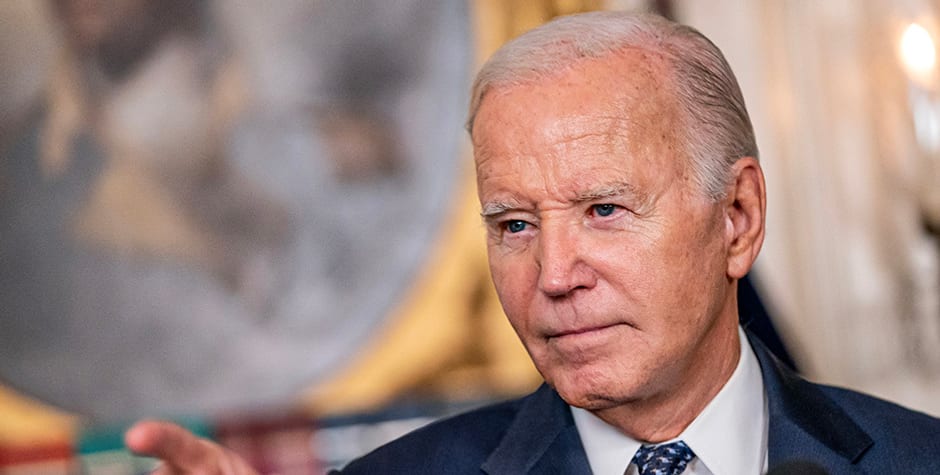Fighting the Biden Scheme To Silence Your Voice
The ACLJ has just filed an amicus curiae brief with the U.S. Supreme Court, opposing an online censorship scheme of the Biden Administration to violate the First Amendment, a tactic so startling that it “jeopardized a fundamental aspect of American life” according to a U.S. District Court. The case is Murthy v. Missouri (formerly known as Missouri v. Biden), a lawsuit brought by the states of Missouri and Louisiana and several censored citizens. The suit was filed against the White House and a vast number of its departments, agencies, and officials who were involved in this viewpoint-suppression campaign.
Equally troubling, this Biden Internet gag order had been running almost completely under the radar. As a result, the American public had no idea that during past election cycles, the White House and its Executive branch agencies had been pressuring Big Tech platforms like Facebook, Twitter (now X), and Google-YouTube, to shut down citizens’ opinions online when they disagreed with the policies of the White House. The Executive branch covertly used mammoth companies to do what the government could not do directly or openly.
The U.S. district court and the Fifth Circuit Court of Appeals both found that the Biden Administration has been intentionally using those giant online platforms to target conservatives as well as other online users who posted opinions running counter to the White House agenda. The viewpoints being censored included dissenting opinions on vaccine mandates and COVID shutdowns, even when voiced by physicians. The topics in this blacklisting venture also included debate over suspicious election procedures and even the mere mention of the Hunter Biden laptop scandal, a breaking news headline just before the 2020 election that posed a political threat to the Biden campaign.
The ACLJ filed its Supreme Court brief on behalf of three well-known and outspoken conservatives who were also silenced during this censorship scheme. Charlie Kirk, noted political commentator and founder of Turning Point USA, conservative spokesman David Harris Jr., and congressional candidate and podcaster Robby Starbuck were all targeted to be blocked or throttled online because of their views. Kirk and Harris were even attacked by name as alleged major “spreaders” of “misinformation” in a report that government agencies consulted during their plan to shut down opposing opinions.
This was a deliberate and unparalleled assault on freedom of citizen expression on the Internet. It is not a case of the government merely asking private companies to help the American people. Nor is there anything wrong with officials encouraging private organizations like faith-based groups to provide social services to communities or partnering with private construction companies to build interstate highways. What happened here, though, was something drastically different. As we argued in our brief:
The Government plan was not merely to use “government speech” to educate or enlighten platforms as a matter of public interest; it was to stop dissenting voices on COVID, vaccines, election processes, and political issues under the guise of “mis/dis-information.” The third-party platforms were treated more as objects to utilize, rather than as subjects to inform.
The enormous power of the federal government, coupled with the market dominance of the Big Tech platforms that the Biden Administration pressured to censor politically inconvenient opinions, created a dual monopoly over political viewpoints online. In other words, as we wrote in our brief to the Supreme Court:
The Government wielded its immense power to leverage massive private platforms to enforce its choice of winners and losers on the most important civic issues of the day. It created a toxic duopoly of power—state and Silicon Valley—over public opinion and freedom of speech.
You can count on the American Center for Law and Justice to keep you informed about this significant case. We also pledge to keep fighting for your First Amendment right to share opinions on every available venue and platform, whether online or offline.
